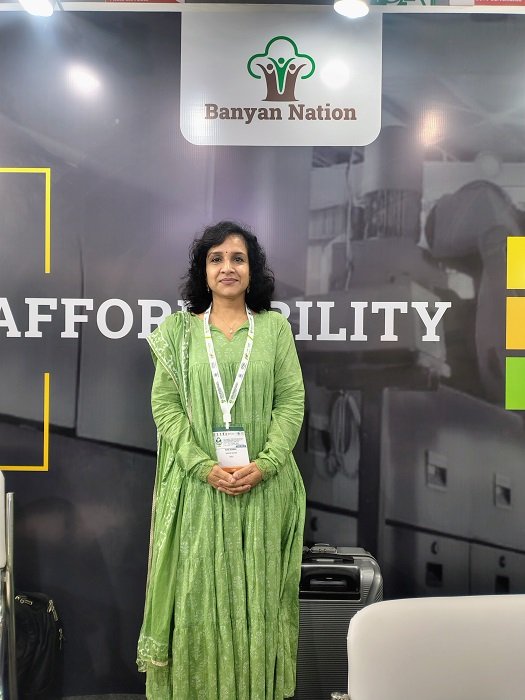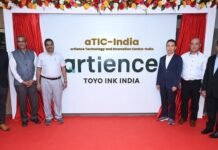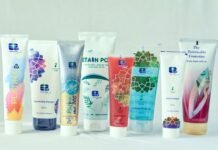
Hyderabad-based Banyan Nation is a leading name in the circular economy for rPE and rPP resins. The company, which has been recycling rigid plastic (HDPE) for the last 5-6 years, is getting into plastic recycling for flexibles. It has enabled top brands to transition from virgin to recycled plastic, helping them fulfill their sustainability and extended producer responsibility (EPR) obligations.
Founded in 2013, Banyan Nation offers EPR solutions and plastic credits, recyclability assessments, technical advice, as well as circular economy pilot projects to leading brands. At the Global Conclave for Plastics Recycling and Sustainability (GCPRS) in Delhi in June, Packaging South Asia interacted with Rashi Agrawal, Banyan Nation’s chief business officer.
According to Agrawal, Banyan Nation is trying to ensure packaging circularity through high-quality recycling and helping brands wanting to shift from virgin plastics to recyclates in packaging because the EPR regulations mandate the use of a certain amount of recycled plastic. “We are helping brands use recycled content without fearing about the safety of their packaging,” she said.
The company, she said, spent five years after its inception in building a supply chain for recyclables. “A unique challenge is the large number of informal waste collectors who form the supply chain. As a result, it is extremely important for recyclers to be supply-secure,” she said.
Any itinerant collector – ragpicker, maid, servant, guard or watchman – collects plastic waste and sells it to a kabadiwala (waste dealer), who is usually present on every street corner with roughly 200-250 households as target customers. They segregate the plastic waste and sell it to larger aggregators. Banyan Nation works with both for its supplies, she said.
Banyan Nation then focused on building the best recycling technology and getting brands on board. As PET bottles had a well-established collection chain, it decided to focus on HDPE and polypropylene bottles from laundry detergents and toilet cleaners, which are harder to collect and recycle.
Banyan Nation produces 100% recycled granules from HDPE and polypropylene bottles, which brands can add to their packaging to fulfill their EPR compliance requirements. Its USP is the consistent quality of its recycled granules, ensuring they are safe and meet European and US safety standards, Agrawal said, adding the company provides guidance and technical support to brands. “We deal with US$ 100 billion brands and we ensure the packaging is as safe as the product (s) inside.”
The company uses a mix of machines for producing recycled granules, including Indian-manufactured AI-sorting machines, a custom-built proprietary washing machine, and European and Indian extruders.
Banyan Nation has a pan-India presence and ships recycled material from Kerala and Chennai to Baddi and other industrial areas in the North. A small portion of the recycled granules is exported, primarily to brands sourcing materials in India and looking for vendors in South Asia and the Middle East.
Banyan Nation’s Sangareddy plant in Telangana has an annual production capacity of 12,000 tons of rigid and 3,000 tons of flexibles, Agrawal said, adding the company is coming up with a new facility near Bengaluru, which will have a combined capacity of 50,000 tons per annum by the next year-end.
Sustainability, she said, should not be a buzzword but a way to do business. Uncollected packaging is one of the largest contributors of plastic waste, and there is a need to get it back into the recycling stream; otherwise, the industry will become unsustainable in both environmental and financial terms.
“We are just generating too much plastic waste and unless we do something about collecting and recycling that waste, we are sitting on a massive problem decades down,” she said.
The recycling show was a great way to understand the industry and how recyclers are meeting demand for sustainable packaging or products. “It’s heartening to see we are not fighting this lone battle. There are others who are making the recycling industry very vibrant.”










